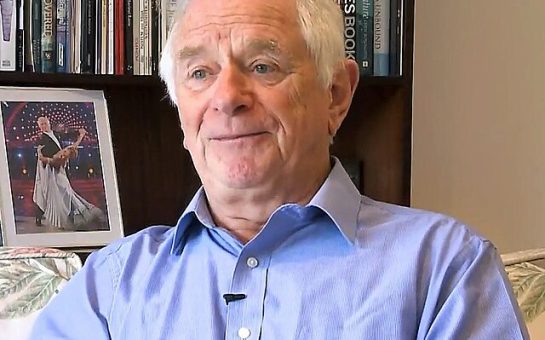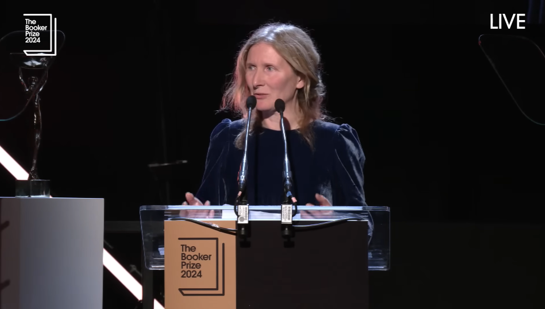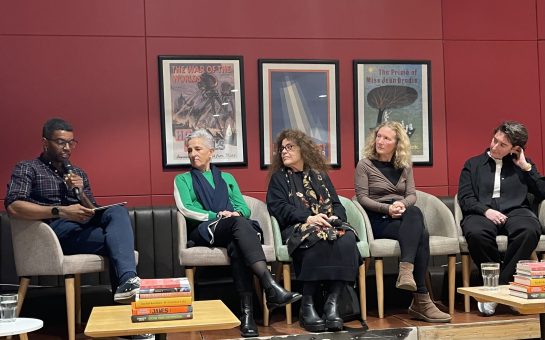“In the endless spaces between the clumsy seconds Death danced like a witch through raindrops, never getting wet.”
Best-selling author, ingenious world creator and solid example of how to be a decent human being, Terry Pratchett, died on Thursday at the age of 66 ‘with his cat sleeping on his bed’.
Fittingly, his death was announced by his daughter on Twitter through the narration of his most popular character, Death:
AT LAST, SIR TERRY, WE MUST WALK TOGETHER.
Terry took Death’s arm and followed him through the doors and on to the black desert under the endless night.
The End.
Terry Pratchett wrote more than 70 books but it was Death that became a favourite character – a gentle being who spoke LIKE THIS, had an unnatural fondness for cats and curry and once decided to become a chef (he was fed up of being Death).
Pratchett was one of those rare incomparable writers whose books made you laugh, rage, weep, laugh again and then seriously consider the state of humanity.
His books challenged serious injustices through the distortion of taking place in a magic reality – for example, the ill treatment of goblins in Snuff parallels the racist treatment of gypsies in our society.
His announcement eight years ago that he had been diagnosed with a rare form of Alzheimer’s, which would guarantee his early death, was a cruel injustice to accept. Here, a man who invented a magical flat world, which existed on the back of four gigantic elephants that are standing on a giant floating turtle, is having his creative mind taken away from him by an incurable disease.
Alzheimer’s is a disease that spares little thought for humanity – it slowly removes every part of yourself that makes you you but Terry Pratchett immediately became the face of the disease upon diagnosis.
He campaigned fiercely for the ‘right to die’ to become a legal right in the UK and donated £1million pounds for future research – while knowing that there wouldn’t be a cure within his lifetime.
He has left behind an unrivalled collection of work – any one of Pratchett’s books from the Discworld series would have been the highlight of another writer’s career, but for him, they were just fractions of his genius.
However, here at MM we attempted to select our top five:
This is the best photo ever taken of Terry Pratchett, and indeed one of the best photos ever taken of anybody pic.twitter.com/p1JCQtfX05
— Mitch Edgeworth (@mitchedgeworth) March 12, 2015
- Pyramids
This is probably one of the funniest Discworld books. The story follows Teppic, heir to the throne of Djelibeybi, who has been sent to Assassin School, in order to get him out of the palace.
As the book explains: “Assassins had a full-length mirror in their rooms, because it would be a terrible insult to anyone to kill them when you were badly dressed.”
Teppic is ordered back home to become the new King, and his attempt to compete with a priest by building the biggest pyramid ever goes badly wrong. Unfortunately, pyramids hold mysterious magical powers and strange things start to happen – the Gods are acting like teenagers, Priests are acting in very un-priest-like ways and the mummies have come to life.
- Small Gods
Small Gods is usually the book to start with for people who aren’t sure whether they want to read the Discworld series. It is a testament to Pratchett that a book which satirises religion, power structures and politics isn’t a seething diatribe or full of despair. There is no finer example of good satire than Small Gods – a story which starts with the Great God Om reincarnating as a tortoise, as people have stopped truly believing in the Church.
It also includes this fantastic quote:
“His philosophy was a mixture of three famous schools — the Cynics, the Stoics and the Epicureans — and summed up all three of them in his famous phrase, ‘You can’t trust any bugger further than you can throw him, and there’s nothing you can do about it, so let’s have a drink.”
- Equal Rites
Pratchett writes about women extremely well i.e. he writes about them as normal human beings. He challenges a lot of assumptions about gender roles in Equal Rites and introduces the most formidable, terrifying, character yet: Granny Weatherwax.
The story follows Eske, the eighth daughter of the eighth son, who should have been a son so that she would become a wizard. Only men can become wizards, women can only be witches – where they mainly dabble in potion making and healing. Obviously, Eske isn’t a boy but she doesn’t see why that should stop her.
(Spoiler alert: it doesn’t. The women reign free and mighty and feminism triumphs at Unseen University.)

GRIPPING STUFF: Pratchett readers clearly couldn’t take their eyes off the page (© miuenski miuenski)
- Mort
This is probably one of the most well-read Terry Pratchett book and the first to properly introduce you to Death. In the book, Death is suffering a mid-life crisis (mid-death crisis?) so he enlists Mort as an apprentice, so that he can go and experience life. Naturally that involves getting drunk, trying curry for the first time and generally indulging in activities normally reserved for a lads’ holiday abroad.
- Guards! Guards!
It’s incredibly difficult to choose the best Terry Pratchett book. Practically all the Discworld characters can bring comfort and entertainment – it just depends what you’re looking for in a novel. Guards! Guards! is definitely one of the best for a number of reasons – it introduces you to a lot of great reoccurring characters, there is a massive dragon and includes Captain Samuel Vimes ‘Boots’ theory of socioeconomic unfairness”, a surprisingly wise breakdown of why a lot of poor people remain poor:
“A man who could afford fifty dollars had a pair of boots that’d still be keeping his feet dry in ten years’ time, while the poor man who could only afford cheap boots would have spent a hundred dollars on boots in the same time and would still have wet feet.”
The story follows the Night’s Watch, an initially hapless group comprised of Captain Samuel Vines, Sergeant Fred Colon and Corporal Nobby Nobbs. The story properly begins when a new member arrives, Carrot Ironfoundersson, a human who thought he was a particularly tall dwarf until told otherwise. The Watch try and challenge a tyrannical takeover from an occult society who have control of a dragon and is hugely fun to read.
The petition for Death to reinstate Terry Pratchett is here.
Donations to the Alzheimer’s Society can be made here.
Main image courtesy of Steve James, with thanks.



